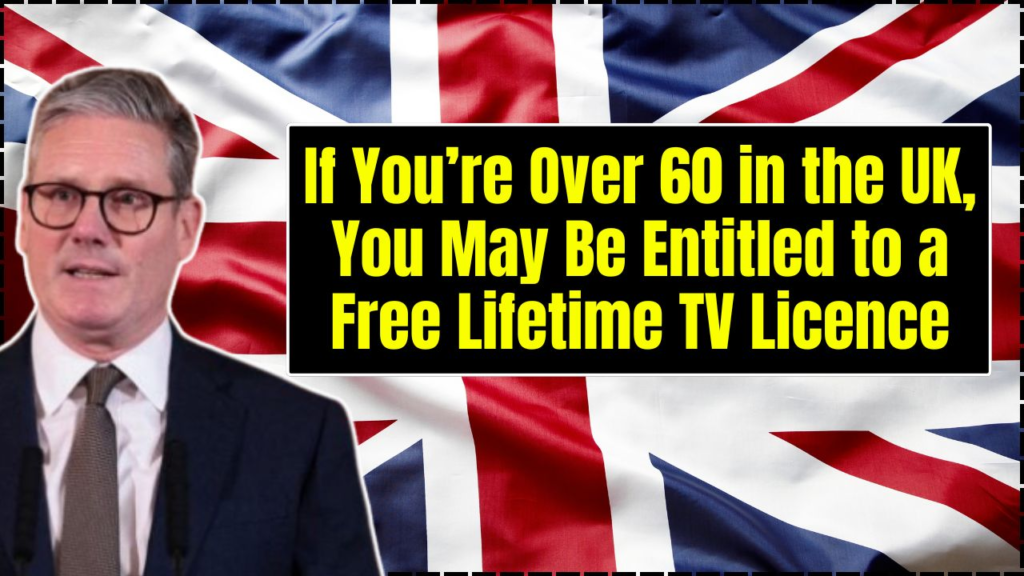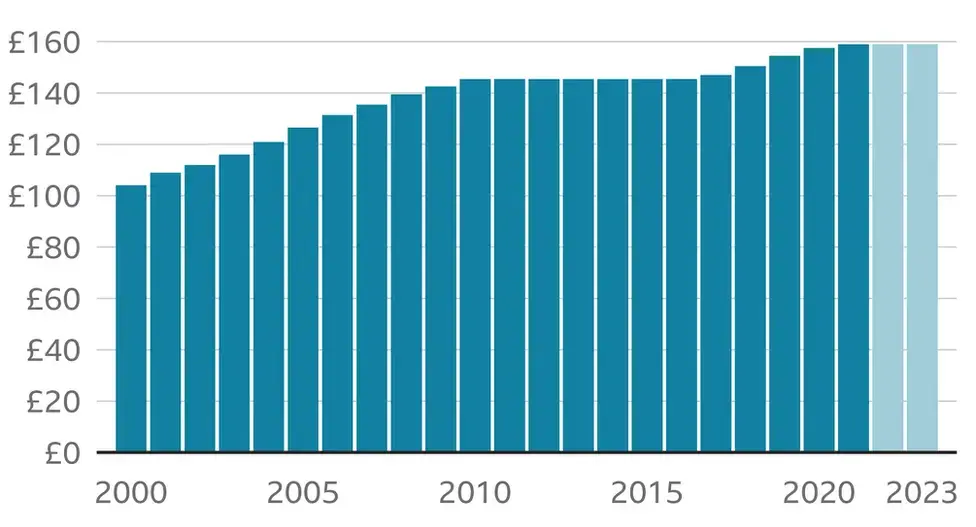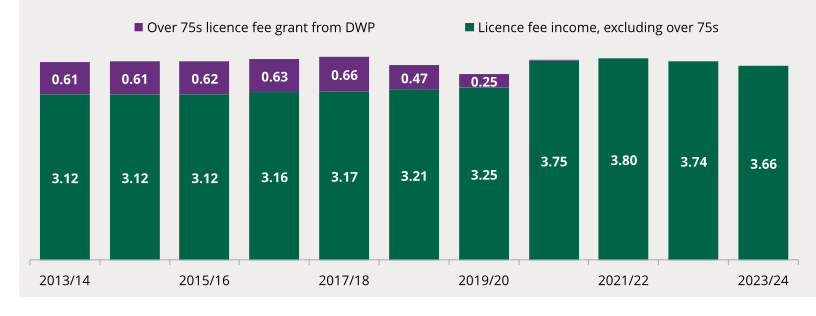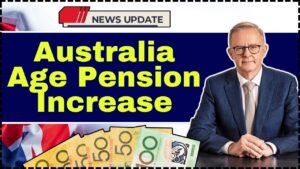
Many UK pensioners may still qualify for a Free TV Licence, but the rules have narrowed significantly, and time is running out for some households to apply. Under the current policy, only those aged 75 or older who receive Pension Credit are eligible for the benefit. Officials and charities have renewed their warnings after misleading claims online suggested that everyone over 60 is entitled to a free lifetime licence.
Table of Contents
Free Lifetime TV Licence
| Key Fact | Detail/Statistic |
|---|---|
| Eligibility Age | 75 years old and above |
| Required Benefit | Pension Credit (Guarantee Credit or Savings Credit) |
| Deadline to Apply | Apply from age 74 to activate at 75 |
| Residential Care Reduction (ARC Licence) | Available to residents over 60 in supported housing |
Historical Background: How the Free TV Licence Began
The Free TV Licence scheme was introduced in 2000 by the Labour government, offering free licences to all households with a resident aged 75 or over. At the time, the policy was aimed at reducing loneliness and supporting older people living on fixed incomes.
For two decades, the cost of the scheme was met by the UK government. In 2015, a funding settlement shifted this responsibility to the BBC starting in 2020. Faced with an estimated £745 million annual bill, the BBC announced in 2019 that it would limit free licences to households receiving Pension Credit, a means-tested benefit.
“Without reform, the BBC would have been forced to close services. This compromise targets support at those who need it most,” the corporation said in its 2019 statement.

Current Rules: Who Qualifies for the Free TV Licence
To qualify, a household must have at least one person aged 75 or over who receives Pension Credit. Applications can be made from age 74 to ensure coverage begins as soon as eligibility starts. Applicants must provide their National Insurance number and proof of benefit.
As of 2025, around 900,000 households hold a free licence, down from 4.5 million before the 2020 reforms. Campaigners warn that thousands more are eligible but have not applied.
“We are concerned that vulnerable pensioners are missing out on vital support,” said Caroline Abrahams, Charity Director at Age UK. “Many simply don’t know the rules have changed.”
Over-60s: ARC Licence Discounts Still Available
While over-60s no longer qualify for a universal free licence, many can access discounted licences under the Accommodation for Residential Care (ARC) scheme. This concessionary licence costs £7.50 a year and is available to people in sheltered housing, supported accommodation, or care homes.
The Department for Work and Pensions (DWP) says the scheme is designed to support those on low or fixed incomes. It remains one of the few remaining concessions linked directly to age.

Economic Impact and Policy Debate
The shift in responsibility from the government to the BBC has been controversial. According to BBC accounts, the full universal scheme would have cost nearly a fifth of its total annual budget. Critics argue this has effectively turned a social welfare measure into a broadcasting budget issue.
“Expecting the BBC to fund what is essentially a welfare benefit is politically convenient but economically unsustainable,” said Prof. Martin Moore, Director of the Centre for the Study of Media, Communication and Power at King’s College London.
The government has defended the decision. A Department for Culture, Media and Sport (DCMS) spokesperson said: “The current policy ensures that support is targeted to those who need it most, while maintaining the BBC’s financial stability.”
Pensioner Voices: Real-World Impact
For many pensioners, television is more than entertainment. It’s a primary source of news, companionship, and routine. Age UK research found that 92% of over-75s watch television daily, and more than half say it helps combat loneliness.
“I live alone. The TV is my company,” said 78-year-old Margaret, a retired teacher from Manchester. “£169 might not sound like much to some, but for me, it’s my heating bill for a month.”
Charities argue that even modest fees can strain fixed incomes. Pension Credit is underclaimed, with an estimated 850,000 eligible households not receiving it. Those not on the benefit lose access to the free licence as well.
Digital Divide: Why TV Still Matters
While younger generations increasingly consume media online, traditional television remains dominant among older viewers. Ofcom’s 2024 Media Nations report found that 97% of people over 75 watch broadcast television weekly, compared with 44% of those aged 16 to 34.
This reliance raises concerns about access to information if costs increase. “Older people are disproportionately affected by changes to TV licensing because they are less likely to substitute other media,” said Dr. Emma Crewe, a senior research fellow at the London School of Economics.
International Comparison: How Other Countries Handle It
The UK is not alone in facing debates over media funding for seniors.
- Ireland provides a free television licence to everyone over 70 regardless of income.
- Germany offers an exemption for people receiving social assistance.
- France abolished its licence fee entirely in 2022, funding public broadcasting through taxation.
Experts say the UK’s approach has shifted toward targeting rather than universal benefits, in line with broader welfare reform trends.
Misinformation and Online Scams
Misleading claims suggesting that over-60s automatically qualify for a Free TV Licence have spread rapidly on social media. Some fraudulent websites mimic official application forms, charging unnecessary fees or harvesting personal data.
TV Licensing and Age UK have issued repeated warnings to the public. “Always use the official TV Licensing website. We will never ask for additional payment to process an application,” said a BBC spokesperson.
Policy Outlook and Future Debates
Campaigners and some MPs are pushing to reinstate a universal scheme, arguing that the current system is confusing and unfair. Petitions have gathered tens of thousands of signatures, and the issue is expected to resurface during the next BBC Charter Review.
“The free TV licence was a simple, effective policy that gave older people dignity,” said MP Debbie Abrahams during a recent Commons debate. “Its removal has left many confused and vulnerable.”
The government has not announced any plans to extend the scheme. Officials say any future changes would depend on wider welfare and broadcasting funding reviews.
What Happens Next
With no immediate policy change on the horizon, officials and charities are encouraging pensioners to check their eligibility early. People turning 75 can apply up to a year in advance to avoid paying unnecessary fees.
“This is about ensuring older people don’t lose access to something that is central to their daily lives,” said Abrahams of Age UK. “Every eligible person should be helped to claim what they are entitled to.”
DWP £470 Pension Bonus In October 2025: Eligibility Criteria & Payment Dates
UK Homeowners Could Save £9,700 This November; Here’s How to Slash Your Mortgage Interest Fast
FAQ About Free TV Licence
Who qualifies for a Free TV Licence in 2025?
People aged 75 or older who receive Pension Credit.
Can people over 60 get any discount?
Yes. Over-60s in supported housing may qualify for an ARC concessionary licence.
Can I get a refund if I become eligible later?
Yes. Refunds can be requested for any unused months once eligibility is confirmed.
Are free licences available in other countries?
Yes. Ireland, Germany, and other European countries offer variations of this policy, though eligibility rules differ.
















